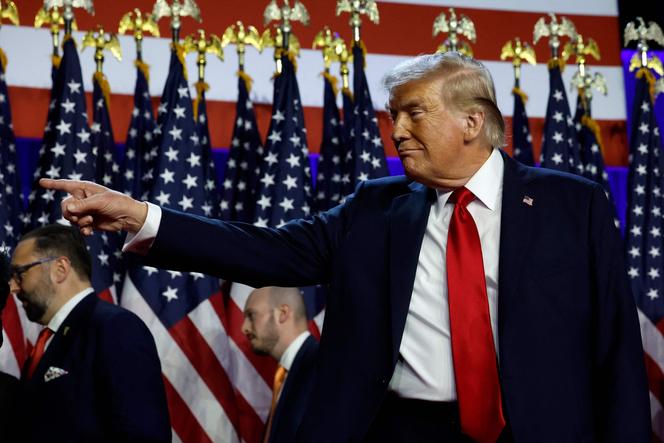


America may be a hard nut to crack, but Donald Trump is not. Regardless of how ethically compromised he may be, the 78-year-old tycoon is the one a majority of voters wanted back. It was after 2 am local time on Wednesday, November 6, that he took to the stage at his campaign headquarters in West Palm Beach, Florida, to claim victory in the presidential election. His voice a little hoarse, the billionaire launched into a long, rambling speech. As always, there was a lot of improvisation. Trump thanked voters for this "extraordinary honor" and "an unprecedented and powerful mandate," promising "a new golden age for America." Even though his victory was yet to be called, he was already claiming he had clinched 315 electoral votes, well beyond the fateful 270 mark.
Trump's defeat of Hillary Clinton in 2016 left the Democrats traumatized for a long time. Joe Biden's victory in 2020 led them to believe that the danger had passed. On Tuesday, the ghost of 2016 returned to the Democratic camp. Early on Wednesday morning, Trump crossed the 270-voter threshold and, four years after leaving the White House, securing his second, non-consecutive presidential term, a performance unprecedented since the end of the 19th century.
To achieve this, Trump beat the odds, broadened his base and, crucially, conquered North Carolina and Georgia, the first two swing states to be called, and then Pennsylvania, around 2 am. When he took to the Florida stage, he was also ahead in other key states with unfinished counts – Wisconsin, Michigan, Arizona and Nevada – looking set for a grand slam that no one had dared to predict. It was a collective car crash for the Democrats, leaving a terrible legacy for Biden and a humiliation for Kamala Harris. The turn to the right in the United States has been brutal, unexpected in its scope, and worrisome for its democracy and traditional allies around the world. The Europeans are at risk of being left to their own devices, Russia has every reason to rejoice, and China could look forward to a new phase of trade tensions with its only systemic rival.
As the hours passed, state after state turned red for Trump, even if the majority in the House of Representatives remained in doubt, unlike the Senate. In the popular vote, Trump was – for the first time – nearly five million votes ahead of his opponent when he took the floor. An incredible reward for a campaign marked by xenophobia, denial of climate change and a cartoonish depiction of an America in freefall. But it was also the recognition of the key themes chosen by Trump: inflation and the migration crisis. The former may have been curbed, but it first wreaked havoc on modest households. Biden was too slow to respond to the second with executive orders. A detailed analysis of the electorate could confirm that the working class, the most precarious wage earners, now call themselves Republicans.
You have 77.71% of this article left to read. The rest is for subscribers only.
